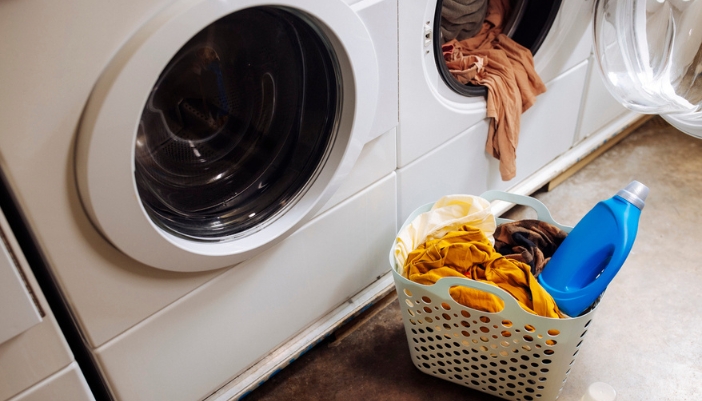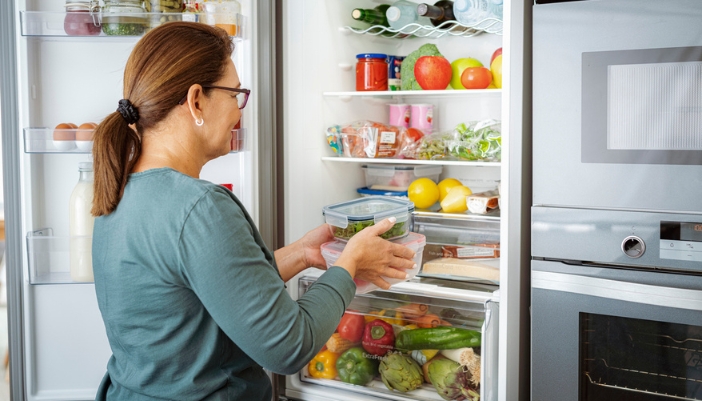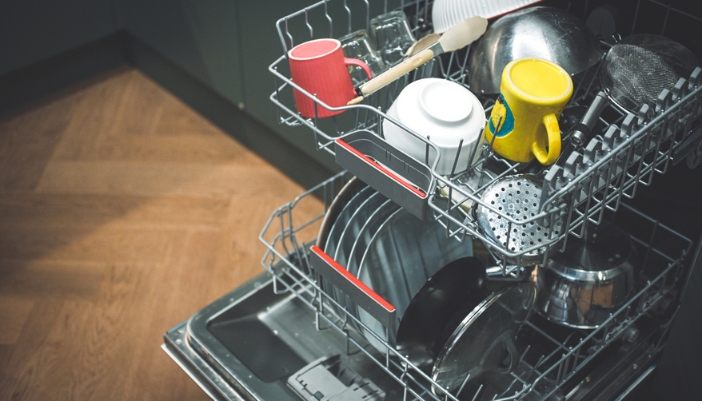You’ve done it. We all have. Stuffed one more towel into the washer, crammed an extra dish in the dishwasher, or tried to squeeze just one more leftover container into an already packed fridge. It feels like a win—until it isn’t. Strange noises, longer cycles, and mysteriously dirty dishes start becoming the norm. But it’s not just annoying—it’s expensive.
Our experts at Bell's Appliance have seen it all, and they know that overloading appliances can lead to major problems. And the worst part? It’s a mistake that’s completely avoidable.

Washing Machines: When Heavy Loads Turn Costly
It’s tempting to stuff just one more towel or that last shirt into the washer. After all, more clothes per load means fewer loads, right? But that mindset can actually cost you more in the long run. Washing machines are built for specific load limits, and cramming too much inside can cause serious problems.
For starters, overloading puts strain on the machine’s motor and drum. When these parts are forced to handle extra weight, they wear out faster. Here’s what can happen:
- Motor Burnout: The machine works harder, leading to overheating and premature failure.
- Drum Damage: Heavy, unbalanced loads can cause the drum to wobble, bend, or even crack.
- Ineffective Cleaning: Clothes get tangled, detergent doesn’t rinse properly, and stains stick around.
If you’re wondering whether you’re pushing your washer too far, the warning signs are pretty clear. Loud banging or shaking during the spin cycle is a big red flag. Clothes that come out soapy, still soaking wet, or smelling less than fresh are all signs of an overloaded washer.
And it’s not just about wear and tear—your wallet feels it, too. Overloading your washer leads to:
- Higher Utility Bills: Longer cycles use more electricity and water.
- Extra Wear on Parts: Motors and bearings wear out faster, leading to repairs.
- Wasted Detergent: Clothes may need a second wash if they aren’t fully clean.
The good news? Avoiding these problems is simple. Check your washer’s capacity, aim for a loosely packed drum, and balance your loads. A little extra care can keep your washer running smoothly and save you money.

Refrigerators: Packed Tight, Priced High
It’s easy to keep adding items to your refrigerator—leftovers, groceries, and that extra bottle of juice all need a spot. But packing your fridge to the brim isn’t just a game of Tetris—it can cause expensive problems.
When a refrigerator is overloaded, airflow is restricted, so it must work harder to maintain a consistent temperature. This added strain can lead to a few major issues:
- Overworked Compressor: The motor runs constantly, wearing out faster.
- Uneven Cooling: Some areas get too warm while others get too cold, leading to spoiled food.
- Frost Buildup: Poor airflow can cause ice on the back wall or around vents.
But how do you know if your fridge is overstuffed? One clear sign is if you have to push or lean on the door just to get it to close. Another clue is food that freezes in the fresh food section or wilts faster than expected. If you notice strange smells, moisture buildup, or ice forming in unusual places, overcrowding could be the culprit.
Overloading isn’t just bad for your food—it’s also bad for your budget. When your fridge has to work overtime to maintain cool temperatures, you end up with:
- Higher Energy Bills: A constantly running compressor uses more electricity.
- Shorter Appliance Lifespan: Overworking the motor means more repairs or early replacement.
- Wasted Food: Items that don’t stay at the right temperature spoil faster.
The solution here is easier than you think. Make sure nothing blocks the vents, organize shelves for airflow, and monitor your temperature settings (37–40°F is ideal). A little space can save a lot of money.

Dishwashers: The Dirty Truth About Overloading
Trying to fit just one more plate or stack another glass in the dishwasher can feel like a win—less handwashing, right? But when you cram your dishwasher full, you set yourself up for frustration.
When a dishwasher is overloaded, water and detergent can’t circulate properly. Instead of sparkling clean dishes, you get:
- Food Residue Left Behind: Plates, bowls, and utensils don’t get fully cleaned.
- Blocked Spray Arms: Overpacked racks prevent water from reaching everything.
- Buildup of Grease and Grime: Poor circulation means food particles get trapped inside.
But how can you tell if you’re pushing your dishwasher too far? One of the clearest signs is opening the door to find wet, dirty dishes or water pooled on top of cups. You might also notice that your dishes look cloudy or feel gritty, even though you used enough detergent
Overloading also means higher costs. When dishes aren’t clean, you end up running extra cycles, which means:
- Higher Water Bills: Multiple runs waste gallons of water.
- More Energy Use: Extra cycles mean higher electricity costs.
- Increased Wear and Tear: Constant strain can damage spray arms, seals, and the motor.
But fixing this is simple. Load dishes with space between them, avoid stacking, and choose the right cycle for your load. Keeping your dishwasher balanced means better cleaning and a longer-lasting appliance.
Don’t Let Your Appliances Tap Out
Your appliances are built to make life easier—but only if you treat them right. Overloading them might seem like a shortcut, but it’s a fast track to higher bills, constant repairs, and shorter lifespans.
Got questions about how to keep your appliances running their best? Our experts at Bell's Appliance are here to help. Whether you’re troubleshooting an issue or shopping for a more efficient model, we’ve got you covered. Stop in and explore our selection today.
